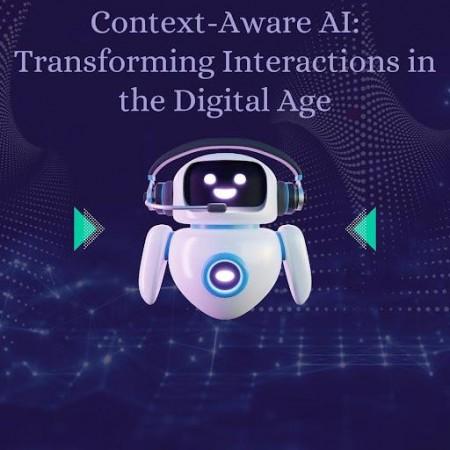Context-Aware AI: Transforming Interactions in the Digital Age

In the world of artificial intelligence, the integration of context-awareness marks a new frontier in user experience. Venkata Subrahmanya Vijaykumar Jandhyala explores this evolution in his recent study, shedding light on the transformative potential of these systems. His work underscores the shift toward AI systems that not only process information but can also understand, retain, and respond based on context. This innovation opens doors to more personalized, efficient, and human-like interactions across various sectors, from healthcare to customer service.
The Emergence of Contextual Intelligence
Context-aware AI now goes beyond simple interactions, using advanced deep learning models to grasp and remember multiple conversation details, achieving remarkable personalization. Unlike early AI, which had limited context retention, modern systems with large language models like GPT-4 maintain coherent, extended dialogues. This advancement allows users to interact more naturally, with AI responses shaped by past exchanges, preferences, and emotional cues. The result is a dynamic, real-time framework enhancing user-centric design and elevating the overall interaction experience.
Enhancing Engagement Through Multi-Turn Conversations
A key advancement in context-aware AI is its ability to manage multi-turn conversations, linking past exchanges with current queries. This capability enhances user-AI interactions, boosting task completion rates by 40% and providing coherent, relevant responses without repeated rephrasing. It enables AI assistants to retain conversation context, minimizing user frustration and ensuring continuity. This feature is especially valuable in customer service, where efficiency and seamless interaction are critical to improving user experience and satisfaction.
Multimodal Contextual Understanding: Beyond Text and Speech
Modern context-aware AI embraces a multimodal approach, interpreting visual, auditory, and environmental cues for more nuanced responses. By integrating geolocation data, these systems provide highly accurate location-specific recommendations. Temporal awareness helps AI anticipate needs based on time-sensitive patterns, while emotional recognition adds empathy to interactions. This multimodal capability enables AI to respond to human needs with greater insight and precision, enhancing the personalization and relevance of each interaction.
Building User-Centric Designs with Contextual Sensitivity
Context-sensitive AI is transforming user-centric design, setting new standards in human-computer interaction. By enhancing responsiveness and relevance, it boosts user satisfaction by up to 78%. These systems anticipate needs based on past interactions and real-time context, making them essential for quick decision-making. Understanding user history, they offer targeted recommendations, enriching experiences across industries like personalized shopping and intelligent healthcare.
Real-World Impact Across Industries
Context-aware AI has diverse, impactful applications. In healthcare, it enhances patient outcomes by considering medical history, environment, and emotions, boosting treatment adherence and care quality. In smart homes, it optimizes settings based on routines and weather, saving energy. In e-commerce, personalized recommendations improve conversion rates, demonstrating AI’s economic benefits.
The Future of Context-Aware AI
As context-aware AI continues to evolve, it is poised to redefine digital interaction. By 2025, experts predict that over 70% of consumer applications will incorporate some level of contextual intelligence. This trend promises to revolutionize fields ranging from autonomous driving to education, where responsive, context-driven interactions could offer more tailored, effective solutions. As these systems become even more adept at managing multiple modalities, the vision of a truly intelligent, adaptable AI that seamlessly integrates into our daily lives draws closer to reality.
In conclusion, the integration of context-aware systems into AI has opened new horizons for personalized and efficient digital interactions. By empowering AI with the ability to interpret and respond based on multifaceted cues, Venkata Subrahmanya Vijaykumar Jandhyala has underscored the transformative potential of this technology, highlighting its promising impact across sectors. Context-aware AI stands at the forefront of a new era in user interaction, one where AI doesn’t just respond it understands, adapts, and enriches human experience.
